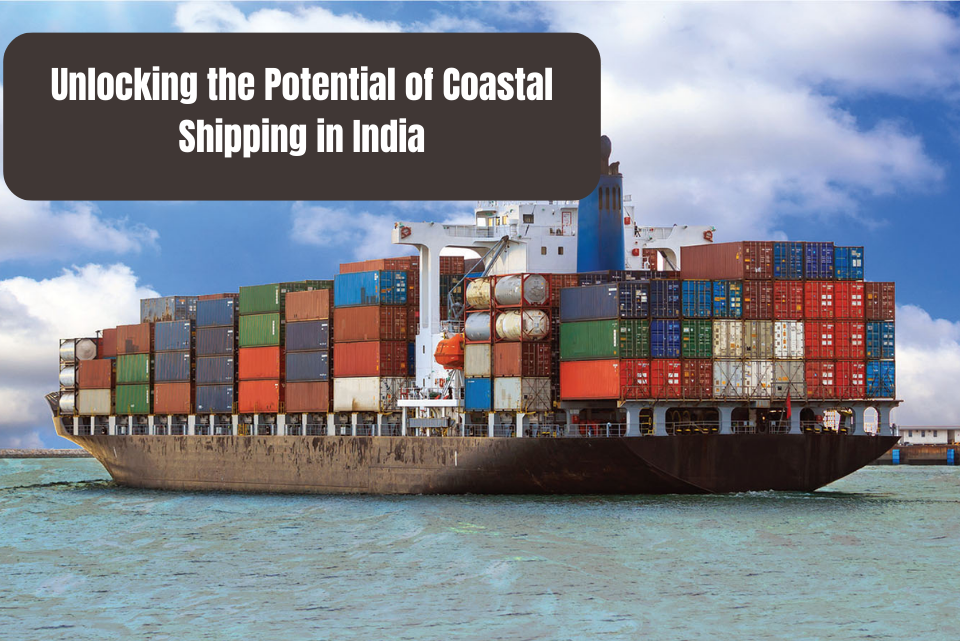Coastal shipping in India offers cost advantages, decongestion of transportation networks, enhanced connectivity, and environmental sustainability. By integrating with multimodal transport and developing dedicated port infrastructure, it can provide efficient and seamless cargo movement. Streamlining regulatory procedures, promoting stakeholder collaboration, and investing in skill development are crucial for unlocking the full potential of Indian coastal service. Embracing these opportunities will result in a more efficient, sustainable, and interconnected transportation system in India.
Indian Coastal Shipping: Opportunities and Challenges
Indian coastal shipping presents several opportunities for the transportation industry. Here are the details:
- Cost Advantage: Indian coastal shipping offers a cost advantage over road and rail transport, especially for long-haul routes and bulk cargo. It can significantly reduce logistics costs, including fuel expenses, toll charges, and maintenance costs.
- Decongestion of Transportation Networks: By diverting cargo from congested road and rail networks to coastal shipping, it helps alleviate congestion and reduces the burden on existing infrastructure. This leads to smoother traffic flow, shorter transit times, and improved efficiency in the overall transportation system.
- Enhanced Connectivity: Indian coastal shipping enhances connectivity to coastal regions and remote areas, providing better access to goods and services. It opens up new markets, supports economic development, and stimulates trade opportunities in these regions.
- Environmental Sustainability: Coastal shipping is an environmentally sustainable mode of transportation with lower carbon emissions compared to road transport. By utilizing coastal services, India can contribute to its environmental goals, reduce pollution, and promote greener transportation options.
- Integration with Multimodal Transport: Indian coastal shipping can be integrated into the country’s multimodal transport network, combining various modes of transportation. This integration creates a seamless logistics solution, enhancing flexibility and optimizing cargo movement.
- Economic Development: Indian coastal shipping or Indian coastal services can contribute to the economic development of coastal regions by facilitating trade, attracting investment, and creating employment opportunities. It enables industries to establish supply chains and logistics networks, driving economic growth in these areas.
- Trade Facilitation: Coastal shipping improves trade facilitation by providing a reliable and efficient mode of transporting goods within the country. It promotes domestic trade and reduces dependence on imports, leading to a more balanced trade environment.
- Fuel Savings and Energy Efficiency: Compared to road transport, coastal shipping consumes significantly less fuel per unit of cargo, resulting in fuel savings and energy efficiency. This contributes to reducing the overall carbon footprint and promoting sustainable transportation practices.
Despite the opportunities, Indian coastal shipping services faces several challenges:
- Insufficient Port Infrastructure: Limited dedicated infrastructure for coastal shipping, including berths, storage facilities, and cargo-handling equipment, hampers its growth. Developing and upgrading port infrastructure is crucial to support efficient operations and accommodate increased cargo volumes.
- Regulatory Complexity: Complex regulatory procedures, bureaucratic hurdles, and documentation requirements pose challenges to the smooth functioning of coastal shipping. Streamlining regulatory processes, reducing paperwork, and creating a more conducive regulatory environment are essential.
- Fragmented Industry Structure: The Indian coastal shipping industry is fragmented, involving multiple stakeholders such as ship owners, operators, cargo owners, and regulatory bodies. Coordinating and integrating these stakeholders for efficient operations and standardized practices can be challenging.
- Limited Awareness and Adoption: There is a lack of awareness and underutilization of Indian coastal shipping services among cargo owners and logistics providers. Promoting the advantages of coastal shipping, conducting outreach programs, and raising awareness are vital to encourage greater adoption.
- Weather and Seasonal Factors: Coastal shipping is subject to weather conditions and seasonal variations, which can affect vessel operations, scheduling, and reliability. Implementing real-time weather tracking systems, developing contingency plans, and optimizing routes help mitigate these challenges.
- Skill Development: The development of skilled human resources in the coastal shipping sector is crucial for efficient operations. Providing training programs, workshops, and skill enhancement initiatives will help address the shortage of skilled professionals and improve overall industry competence.
- Safety and Security: Ensuring the safety and security of coastal shipping operations is essential. Measures should be in place to mitigate risks such as piracy, accidents, and unauthorized activities. Implementing robust security protocols and surveillance systems can help address these concerns.
- Government Support: The government plays a vital role in promoting and supporting the growth of Indian coastal services. Policies and incentives that encourage investment, infrastructure development, and streamlined regulatory processes are necessary to create an enabling environment for the industry.
By capitalizing on the opportunities and addressing the challenges, Indian coastal shipping or Indian coastal services has the potential to revolutionize the transportation sector. It can provide a sustainable, cost-effective, and efficient mode of transporting goods, thereby driving economic growth, improving connectivity, and contributing to India’s overall development.



